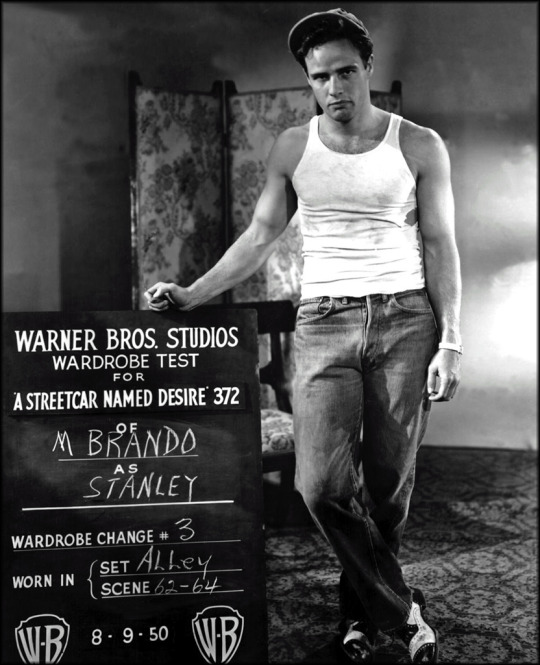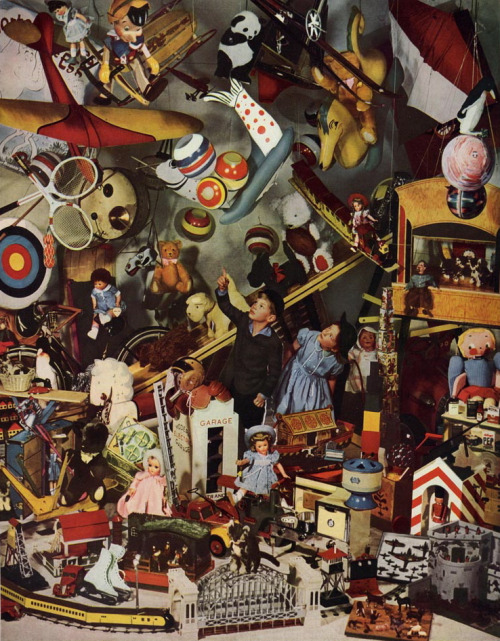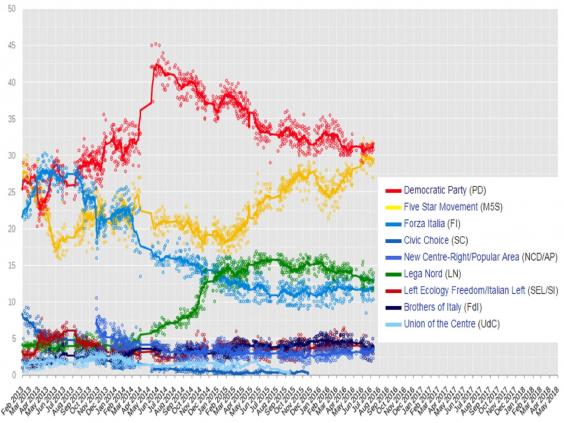
Marlon Brando screentest 1951
I’m trying, I swear, to get into the fold, but I just can’t NOT find this hilarious. On the eve of his presidency, Donald Trump tells European leaders, by not telling them diddly-squat, that he doesn’t think they matter all that much. It’s not just that his vision of the EU, and its importance, is very different from theirs, he also remembers very well what many of them have said about him in the run-up to his election for the presidency.
Europe’s leaders, with the exception of Nigel Farage and Marine Le Pen, have been ridiculing and outright demonizing Trump ever since he declared his candidacy. They’ve said similar things about him that they say about Vladimir Putin, and in the 2016 fake news avalanche they’ve thrown the two together in various ways and for reasons they claim are obvious, with quite a few Hitler quips thrown in for good measure.
Now, for some reason they all seem to think it’s important to meet with Trump before he meets with Putin, as if his view of the world, and that of his entire government, is so unbalanced it could be decided at the toss of a coin. Trump is having none of it. After having been compared to anything that’s considered worst under the sun, who’s going to blame him?
Donald Trump feels, and largely rightly so, that the principle of innocence before being proven guilty was abandoned with much fervor by many, and certainly across the EU. The result is that now he’s simply not that into them. He’s been shown no respect at all, and he has not forgotten that. And it leads to a situation that’s brilliantly entertaining.
The EU, like the Obama/Clinton cabal, have dug in their heels and then dug some more when it comes to Putin, and by -their, not his- association also to Trump. They never thought he’d be elected, and now that he has been they don’t know what to do with themselves (how about an apology for starters?).
AP reports, even if once again you have to read between all the innuendo and opinionated humbug (grow up, AP!):
Anxious European Leaders Seek An Early Audience With Trump
European leaders, anxious over Donald Trump’s unpredictability and kind words for the Kremlin, are scrambling to get face time with the new American president before he can meet with Russian President Vladimir Putin, whose provocations have set the continent on edge. One leader has raised with Trump the prospect of a U.S.-EU summit early this year, and the head of NATO — the powerful military alliance Trump has deemed “obsolete” — is angling for an in-person meeting ahead of Putin as well. British Prime Minister Theresa May is working to arrange a meeting in Washington soon after Friday’s inauguration.
For European leaders, a meeting with a new American president is always a sought-after — and usually easy-to-obtain — invitation. But Trump has repeatedly defied precedent, making them deeply uncertain about their standing once he takes office. Throughout his campaign and in recent interviews, Trump has challenged the viability of the EU and NATO, while praising Putin and staking out positions more in line with Moscow than Brussels. “There are efforts on the side of the Europeans to arrange a meeting with Trump as quickly as possible,” Norbert Roettgen, the head of the German Parliament’s foreign committee and a member of Chancellor Angela Merkel’s party, told AP.
In fact, eager to stage an early show of Trans-Atlantic solidarity, Donald Tusk — the former Polish prime minister who heads the EU’s Council of member state governments— invited Trump to meet with the EU early in his administration, according to a European Union official. But a senior Trump adviser essentially rebuffed the offer, telling the AP this week that such a gathering would not be a priority for the incoming president, who wants to focus on meetings with individual countries, not the 28-nation bloc.
Trump backs Britain’s exit from the European Union, casting the populist, anti-establishment movement as a precursor to his own victory. In a recent joint interview with two European newspapers, Trump said of the EU, “I don’t think it matters much for the United States.”
So far so good, but then the rhetoric starts again. Only, it does so by calling Trump’s words ‘rhetoric’:
Such rhetoric alone was enough to set off alarm bells in Europe. And Trump’s praise for Putin and promise of closer ties to Moscow have deepened the uncertainty. Trump has raised the prospect of dropping U.S. sanctions on Moscow and has appeared indifferent to Russia’s annexation of territory from Ukraine. The hacking of his opponents during the U.S. election, and Trump’s dismissal of the CIA’s warnings about Russia’s involvement, added a dose of spy drama.
Trump’s sentiments mark a dramatic shift in Republican views of Europe, just a generation after George H.W. Bush famously greeted the collapse of the Iron Curtain by calling for a “Europe whole and free.” Trump’s top national security adviser has been in close contact with the Russian ambassador to the U.S., conversations that have involved setting up a phone call between the Putin and the president-elect, transition officials have said. But Trump currently has no plans to meet with Putin, according to the senior adviser, who insisted on anonymity in order to discuss the transition team’s internal planning.
Why on earth would Trump NOT meet with Putin? Because of all the unsubstantiated blubber his opponents have showered over him in their attempts to derail his campaign? If anything, that would probably make him all the more determined to set up such a meeting. Moreover, there’s a lot of damage that needs to be repaired in US-Russia relations, damage done by the former administration and the press it has a love relationship with.
[..] Aides have signaled that one of Trump’s first foreign leader meetings at the White House will be with May, who became prime minister following Britain’s vote to leave the EU. The president-elect’s team is also working on early invitations to Washington for the leaders of Mexico and Canada, according to the Trump adviser. Barring other arrangements, Trump and Putin’s first meeting of the year might not come until July when the Group of 20 leaders gather in Hamburg, Germany — though Trump has yet to say whether he plans to attend international summits.
If he does, some European leaders could get an audience with him in May at a planned NATO summit and a gathering of the more elite Group of Seven in Italy. Russia had been a member of that group, but the U.S. and Europe ousted Putin after the annexation of Crimea from Ukraine. One of the first tests of Trump’s loyalties may well be whether he seeks to bring Russia back into that fold.
“If we start to equate democracies and non-democracies, allies and adversaries, this is setting a very dangerous precedent,” said Heather Conley, director of the Europe program at the Center for Strategic and International Studies. She said that if Trump were to reach out to Putin ahead of the Europeans upon taking office, “it would be a real cautionary note” for long-standing U.S. allies.
Guys! You lost! You lost big. Get a grip. It’s a different world out there. Adapt accordingly or fade away. Something tells us the adaptation process will prove too much for most of Europe’s current leaders. That will necessarily mean that most won’t be leaders for long.
Europe will have to move closer to Putin as Trump does so. The war mongering posture of the past decade or so will have to go. This will be very hard to do for those leaders who have called both men everything awful in the world. Those who can’t will have to leave. Like Juncker:
Hands off EU, Trump; We Don’t Back Ohio Secession: Juncker
Donald Trump should lay off talking about the break-up of the European Union, the bloc’s chief executive said on Wednesday, pointing out that Europeans do not push for Ohio to secede from the United States. In pointed remarks on the eve of Trump’s inauguration as U.S. president, Jean-Claude Juncker said the new administration would realize it should not damage transatlantic relations but added it remained unclear what policies Trump would now pursue.
Juncker told Germany’s BR television, according to a transcript from the Munich station, that he was sure no EU state wanted to follow Britain’s example and leave the bloc, despite Trump’s forecast this week that others would quit: “Mr. Trump should also not be indirectly encouraging them to do that,” Juncker said. “We don’t go around calling on Ohio to pull out of the United States.”
Juncker, the president of the European Commission, said he had yet to speak to Trump – contrary to what the President-elect said earlier this week. Juncker said Trump had confused him with European Council President Donald Tusk. “Trump spoke to Mr. Tusk and mixed us up,” said Juncker, taking a jab at the American billionaire’s grasp of his new role. “That’s the thing about international politics,” he said. “It’s all in the detail.”
It’s clear that in many countries, growing segments of both the population and the political sphere are thinking and talking about following Britain’s example. Juncker had better address their concerns than trying to ignore and deny them, or he will guarantee to achieve the opposite of what he wants.
That Donald Trump was elected in the first place is a surefire sign that many things were going very wrong in the world. Brexit is a sign of the exact same thing. Elections and other votes coming up in Europe will be the next in line, and it doesn’t even matter who wins them; many will be far too close for comfort for the existing order.
Meanwhile, watching the spectacle unfold from a distance, we find it impossible not to be highly amused by the former world order seeing their own words and actions backfire on them. And that has nothing to do with being pro-Trump or pro-Le Pen.









